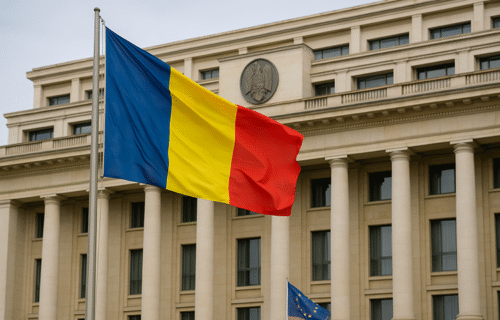Romania’s path toward joining the Organisation for Economic Co-operation and Development (OECD) has entered an advanced stage, with government officials reaffirming their goal of completing the process by 2026. The move is widely viewed as a milestone comparable to the country’s entry into the European Union nearly two decades ago — a step that could reshape investor confidence, public policy, and long-term economic strategy.
Romania was formally invited to begin OECD accession talks in 2022, marking the start of a rigorous evaluation process across more than two dozen policy areas. These reviews, conducted by OECD expert committees, examine whether national legislation and governance practices align with the standards of some of the world’s most advanced economies. Progress has been steady: several committees have already endorsed Romania’s compliance in areas ranging from regional development to public finance, while others continue to assess reforms related to taxation, education, and environmental policy.
Officials describe the process as both demanding and transformative. Beyond the legal adjustments, OECD membership is expected to deepen Romania’s institutional credibility, signal long-term policy stability, and attract higher-quality investment. The government also sees it as a strategic anchor, reinforcing the country’s position within Western political and economic structures alongside its EU and NATO commitments.
Recent assessments from the OECD underline both Romania’s progress and the challenges that remain. The organisation has noted improvements in areas such as fiscal discipline and market openness but continues to highlight structural weaknesses in productivity, workforce training, and regional inequality. Economic growth is projected to remain modest over the next year before recovering gradually, supported by reforms aimed at boosting competitiveness and innovation.
Environmental policy and energy diversification have become central themes of Romania’s engagement with the OECD. Efforts to promote green investment and reduce dependence on fossil fuels are seen not only as climate commitments but as long-term competitiveness measures. By strengthening energy security and accelerating the shift toward renewable sources, Romania aims to align more closely with OECD priorities for sustainable growth.
Although government officials often point to the benefits of joining what is sometimes called the “club of best practices,” experts caution that accession alone will not solve the country’s economic imbalances. Membership provides a framework for reform — not a guarantee of immediate results. The real test will lie in how effectively Romania applies OECD standards to improve education, healthcare, and public administration.
Still, the symbolism and strategic weight of OECD membership are undeniable. For Romania, it represents both an acknowledgment of progress made and a commitment to the reforms still needed to secure long-term prosperity in a changing global economy.
